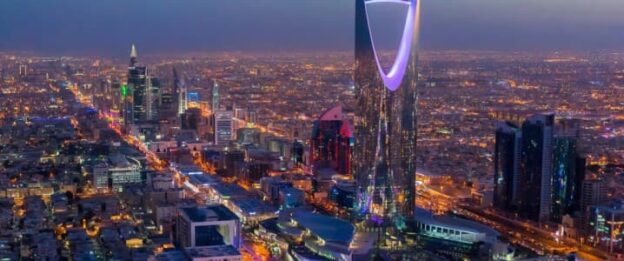- Saudi Arabia is looking to introduce a voluntary carbon market.
- The CEO of Saudi Arabia’s Regional Voluntary Carbon Markets Company indicated that 2.5 million tons of carbon credits will start to be auctioned today.
- The Regional Voluntary Carbon Markets Company was set up as a joint venture between the Saudi sovereign wealth fund PIF and the Saudi Tadawul Group Holding Company.
While the world is watching COP29 in oil rentier state Azerbaijan, OPEC’s leader, Saudi Arabia, presents a new addition to its economic diversification strategy: a voluntary carbon market. Even though most analysis is currently linking the announcement of a new carbon-trading market to the COP29 breakthrough entailing rules for a UN-administered global emissions market, the real drivers of the Saudi move are clear: monetization of every single asset the country holds in theory. A statement made by Riham ElGizy, CEO of Saudi’s RVCMC (Regional Voluntary Carbon Markets Company), indicated that 2.5 million tons of carbon credits will start to be auctioned today. RVCMC also stated that the funds will help climate projects in the global south and support the Kingdom’s net zero goals.
The Saudi move was already anticipated since 2021, when RVCMC was set up as a joint venture between the Saudi sovereign wealth fund PIF and the Saudi Tadawul Group Holding Company (Tadawul Group), with PIF holding 80% and the Saudi Tadawul Group 20%. It is now remarkable that PIF is also the latter group’s main shareholder. In 2021, PIF and Tadawul announced the Voluntary Carbon Market (VCM) initiative. In 2022, during the so-called ‘Davos in the Desert’ or Future Investment Initiative (FII), 1 million tons of carbon credits were already auctioned. For PIF and others, setting up VCMC is a logical step, as it supports and finances the Kingdom’s green agenda, as shown in several green bonds, raking in billions of dollars and financing major renewable energy projects. In October 2024, an MOU was signed between the Regional Voluntary Carbon Market Company (RVCMC) and the Clean Development Mechanism Designated National Authority (CDMDNA), with a complete strategy to increase, expand, and support the Kingdom’s carbon markets. It also falls directly in the Saudi Vision 2030 strategy, supported by Crown Prince Mohammed bin Salman, to reach net-zero emissions by 2060 and cut carbon emissions by 278 million tons annually by 2030 under the Saudi Green Initiative. The latter also includes ambitious carbon capture targets, with plans to capture 44 million tons of CO2 annually by 2035 and utilize 2 million tons daily to produce eco-friendly products like green methanol and clean fuels.
Related: OPEC Slashes Oil Demand Growth Estimate Again
Critics are already commenting on the Saudi Carbon strategy. Most are questioning the overall impact of greening the planet or removing emissions. As some stated, carbon markets unlock billions of dollars in financing, allowing polluters to meet their official targets by buying credits. Opponents are pointing at the extensive list of ‘fake’ carbon credit schemes in the global south, where significant investors have lost money and their credibility.
However, RVCMC has already included these critical remarks in their proposals. The company will have all credits and accreditation secured from Sylvera or BeZero. The Saudis aspire to become one of the world’s largest voluntary carbon markets by 2030. Auctions are being held and are targeted to include credits from climate projects in countries including Bangladesh, Brazil, Ethiopia, Malaysia, Pakistan, and Vietnam. Around twenty Saudi Arabian companies and two international firms are registered to buy credits.
The overall formula is set for success and is backed by Saudi Arabia’s main parties, PIF and others. It is also based on Saudi Arabia’s possible international network in the global south. By addressing and certifying all credits, some of the ongoing critical discussions regarding projects are expected to be removed.
From a birds-eye view, the move into carbon markets is not new, but it is supported by all now, as the Kingdom is facing some financial hurdles already. Saudi Aramco’s overall debt position is heading to a net-debt situation, as the company’s revenues are still primarily targeted to fund Saudi Vision 2030 projects and the government’s expenses. Current oil prices are no longer bringing in the necessary funds, while overall expenditure of the known and still-to-come Giga projects is sky-high. In a situation where even the King of Oil is facing financial pressure, the realization has come that energy transition and economic diversification are not for free. Not even for a rentier state holding vast oil and gas reserves. Monetizing any additional source of resources is a welcome extra, but if this is enough remains to be seen. For global carbon markets, the Saudi move is a significant boost, especially as Riyadh always has a long-term approach and is not looking for quick wins.
https://oilprice.com/Energy/Energy-General/OPEC-Leader-is-Making-Big-Moves-in-Carbon-Markets.amp.html





